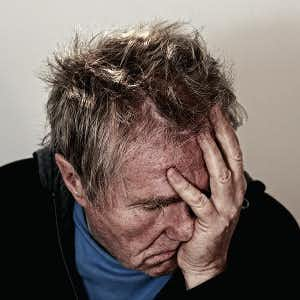
Q. I have been on medication for high blood pressure for years, but over the past eight months my doctor has changed my prescriptions quite a few times. My blood pressure readings have improved but at a cost.
I now feel exhausted most of the time. My head feels muddled, especially in the mornings. I also suffer from erectile dysfunction. Overall, I feel unwell and quite depressed.
I take indapamide, bisoprolol, doxazosin and simvastatin. Are there any other ways to treat high blood pressure?
A. Bisoprolol is a beta blocker. Like other blood pressure drugs in this category (atenolol, metoprolol, propranolol, etc), it can cause fatigue, dizziness, slow heart rate and sleep disturbances. Indapamide and doxasozin could also contribute to your fatigue and dizziness. Erectile dysfunction may also be a consequence of your blood pressure regimen.
We understand your doctor’s desire to get your hypertension under control. When blood pressure gets too high the risk for heart attacks and strokes increases substantially. The trick is to find the sweet spot that will allow for adequate control without making people feel bad.
Dizziness from Blood Pressure Drugs Can be Deadly:
Dizziness is a serious complication of blood pressure drugs that is sometimes ignored by health professionals. If an older person falls because he is unsteady on his feet it could lead to a fracture and a downward spiral that might be devastating.
Fatigue, fuzzy brain, depression and erectile dysfunction are equally disruptive to quality of life. There has long been controversy about whether beta blockers like metoprolol or propranolol cause depression. A study in Family Medicine (June, 2014) suggests that some beta blockers like metoprolol, propranolol, bisoprolol, pindolol, carvedilol and nebivolol are more likely to trigger depression than other beta blockers.
These blood pressure drugs are considered “lipophilic” meaning that they have an affinity for fats or lipids in the body. That may make them bind to tissues in the brain more readily. Whether this is a contributing factor in side effects like depression has not yet been fully determined.
No one should ever stop any medication without first discussing drug side effects with the prescribing physician. There may be alternative approaches that do not cause disturbing adverse reactions.
Please let your doctor know how much your treatment is affecting the quality of your life. To help with that conversation we are sending you our Guide to Blood Pressure Treatment. Anyone who would like a copy download an electronic PDF file for $2 at this link. This guide will provide a number of nondrug approaches to controlling hypertension. If your doctor reevaluates your regimen to include such strategies together with blood pressure drugs that do not cause depression, fatigue or dizziness you may discover that your quality of life will improve.

